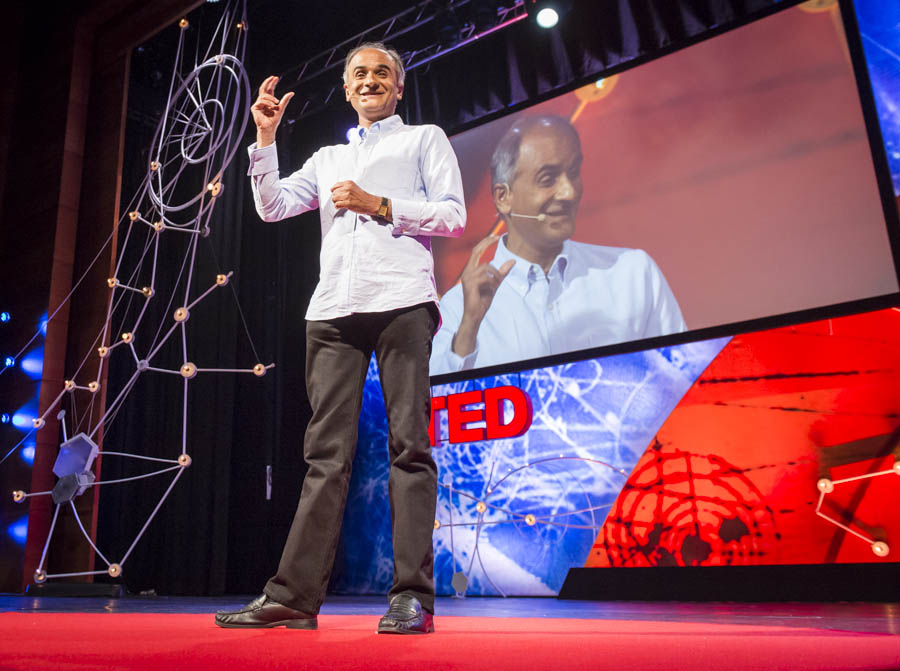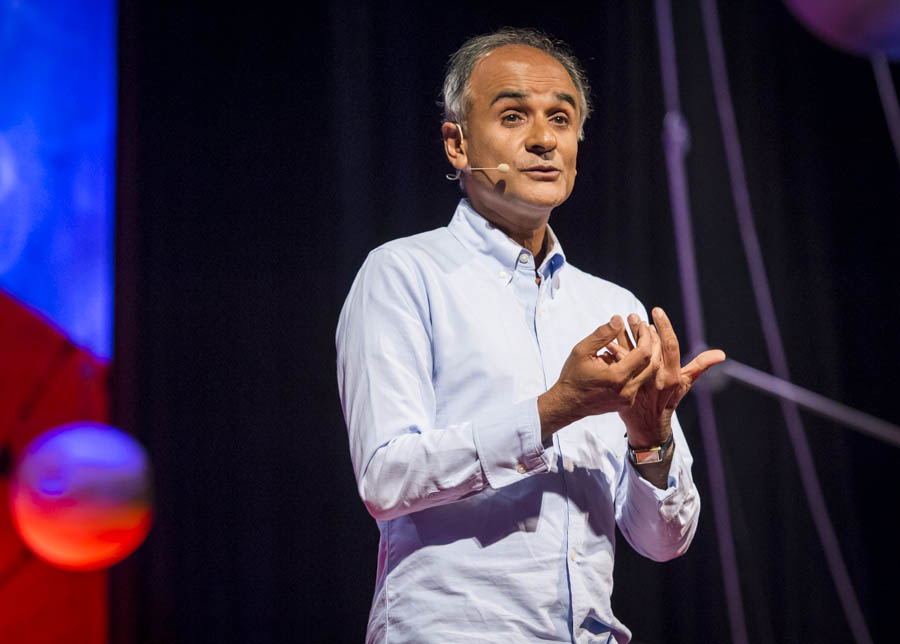Pico Iyer is a man without a land. He is 100 percent Indian in blood and ancestry, but he was born and grew up in England; he has lived the last 48 years in the U.S., where he sees his doctor and dentist, but for the last 25 years he’s spent as much time as possible in Japan. But many people he knows are even more international and, in a similar way, home-less. These people have one place they associate with their parents, another with their partners, a third with the place they happen to be at the moment, and a fourth with the place they dream of being. “Their whole life is going to be spent taking pieces of many different places and putting them together in a stained glass whole,” says Iyer. “For more and more of us, home has less to do with a piece of soil than a piece of soul.”
Years ago Iyer was in his parents’ house in California when he realized the house was encircled by 70-foot flames. Three hours later, his house — and everything in it but him — had been reduced to ash. The next morning at his friend’s, Iyer realized all he had to his name was a toothbrush he had just bought. He says, “My home would have to be whatever I carried around inside me.”
It was a terrific liberation.
According to Iyer, the number of people living in countries not their own now numbers close to 220 million. That’s more than four times the population of Canada and Australia combined. Soon, says Iyer, it’ll be the fifth largest “nation” on Earth. “Travel,” he says wistfully, “Is a little bit like being in love. Suddenly all your senses are marked ‘on.’ You are alert to the secret patterns of the world.”
And yet. The joy of traveling is perhaps only matched by the joy of staying still. After Iyer’s house burnt down, his friend told him about a Catholic hermitage he promised would be unlike any other experience Iyer had had before. Skeptical but intrigued, Iyer drove three hours north along the coast. When Iyer stepped out of his car at the top of the mountain, the air was pulsing with a silent energy. At his feet was the great blue plate of the Pacific. All around him were acres of wild brush.
Iyer’s mind became serene as he went to his room and wrote for four hours straight. He says, “It was the freedom of traveling, but also profoundly felt like coming home.” During the day, he walked and sent postcards, and sat in silence. Iyer says it was some of his most important work. Thus he prescribes to the audience: Sit 30 minutes every morning without devices. Be still. After all, “Movement is a fantastic privilege … but it ultimately only has meaning if you have a home to go back to.” Which can be anything or anywhere, he says. Because “home is in the end not just the place where you sleep, but the place where you stand.”
Pico Iyer’s talk is now available for viewing. Watch it here »


Comments (16)
Pingback: 「家」在何處? – Conde House
Pingback: Where Is Your Home? – Conde House
Pingback: Pico Iyer on the Art of Stillness, Going Nowhere, Lessons from a Ping-pong game | MasakaliBytes
Pingback: The Dance of Matisse – Purple Exposure
Pingback: Where is Home? That Is The Question. | Third Culture Kids in Adulthood
Pingback: Who are Adult Third Culture Kids? | Third Culture Kids in Adulthood
Pingback: Travel Like an Architect™ because it's a Romantic Getaway! - Book A Cruise - Belles World Travel
Pingback: “Home has less to do with a piece of soil than a piece of soul” -PI | (K)eeping.me.(C)urious
Pingback: The Expat’s Aging, Caregiving and Related Journeys: Why Bring Them Up | The Last Boarding Call
Pingback: TCKid 2013 Year in Review « News TCKID
Pingback: TCKid Launches Interview Series « News TCKID
Pingback: Another kind of love story - Artifact Uprising
Pingback: Annie Dillard on presence over productivity & Pico Iyer on where home is | Honors College at WKU Advising